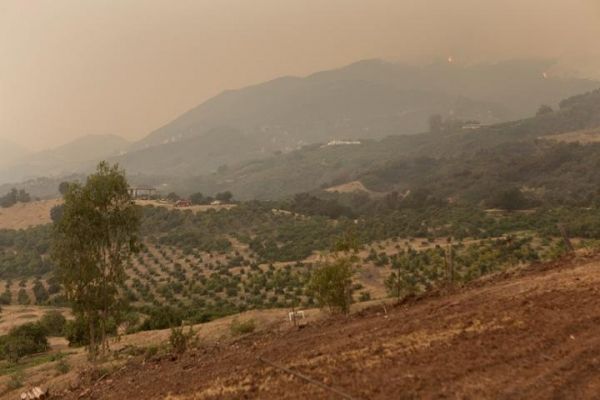Tweets originating in California during the state’s 2015 wildfire season suggest that social media can improve predictions of air quality impacts from smoke resulting from wildfires and have the potential to improve rescue and relief efforts, according to research by two USDA Forest Service scientists.
The study by Sonya Sachdeva of the Forest Service’s Northern Research Station and Sarah McCaffrey of the Rocky Mountain Research Station, “Using Social Media to Predict Air Pollution during California Wildfires,” was recently published by the International Conference on Social Media & Society. The study is available at: https://www.fs.usda.gov/treesearch/pubs/56459
Whether it is caused by wildfire or prescribed fire, smoke can have serious health ramifications, including aggravating respiratory and cardiovascular conditions. In a previous study, Sachdeva looked at 700 tweets related to the King Fire in California and found that they were a reliable predictor of air quality related to that fire. In new research, Sachdeva and McCaffrey evaluated 39,000 tweets that included the names of the state’s most destructive wildfires of the 2015 season.
“With wildfire seasons becoming longer and more people living in fire-prone areas, smoke is becoming a greater public health concern,” Sachdeva said. “Models for predicting the extent and range of impact of smoke dispersion from wildfire events can be a critical tool in safeguarding public health, and we’re finding that information people share in social media has great potential for improving those models.”
Read more at USDA Forest Service - Northern Research Station
Image: A new study by USDA Forest Service scientists suggests that what people in areas affected by wildfire tweet can be a reliable predictor of air quality. Photo shows the Thomas Fire on Los Padres National Forest near Ventura, Calif., in 2017. (Credit: Forest Service Photo by Kari Greer)


